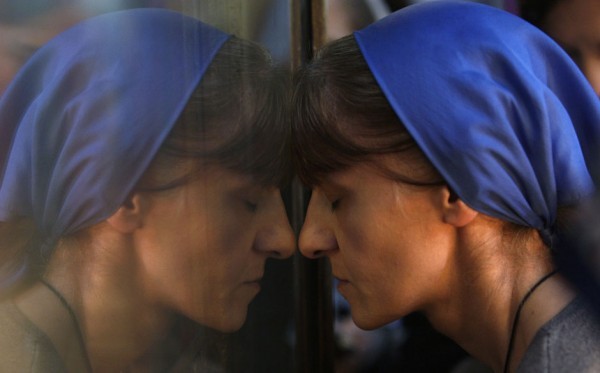No, we cannot address repentance in a short term model. We should not even try to do this. We need to teach, and preach, and talk, and counsel about the fact that repentance is a process, and that short counseling sessions, or conversations with a priest, or advice received during confessions may serve as mile-markers, or guiding points, but certainly not as one-time magical cures.
It is true that modern culture promotes “magic pills” and instant gratification. But we should not allow modern culture to shape our understanding of repentance, even linguistically. Modern culture tries to define our understanding of repentance in the terms of problems and solutions–if one has a problem with sin, then he expects a quick solution: say a special prayer, drink some holy water, take communion, visit a holy place–and the sin magically disappears. As pastors, we must be very vigilant about this type of “magic” and offer to our parishioners models and images of repentance that best explain the Orthodox view and the Orthodox culture. People are not born with the modern mindset of instant gratification, they learn it. This means that they can also learn something different. We must not be afraid to teach, it is not a lost cause. We should come up with ways and images that are easily comprehended and convey the Orthodox understanding of the spiritual life.
Most modern people understand illness, and more and more people understand chronic illness. This may be the easiest image to use in pastoral work when we speak about spiritual healing. We can teach our flock that even a simple cold takes a few days to go away, and the more serious the illness, the longer the healing process. In some cases, it is a life-long struggle. Sin is a very serious and deadly disease and there is no quick fix for that.
Another image that I found very helpful is that of running. I often point out to people that if they want to win a marathon, they begin by running a mile, then two, then three–building up strength and endurance over a period of time. It takes will power, hard work, persistence, determination. Without all of these things, no-one can hope to win a race or even to complete one. For other people, the image of weightlifting also works. If they want to bench-press 400 lbs., they must start with 100 lbs. and work their way up over time, applying all of the same hard work, determination and patience needed for a marathon.
In my experience, these images seem to help many people understand why one confession or one prayer do not produce an immediate effect of making them holy or making the sin “go away.” One single run or one workout at the gym do not make an athlete and one trip to a doctor does not cure cancer. It takes years of daily discipline, exercise, special diet, sacrifice of time and effort to achieve athletic results, and it takes a long course of medications, procedures, regiment, and patience to recover from a serious illness. Similarly, it takes years of daily discipline, ascetic exercise, fasting, and sacrifice of time and effort to achieve spiritual results and to recover from the disease of sins and passions.





















